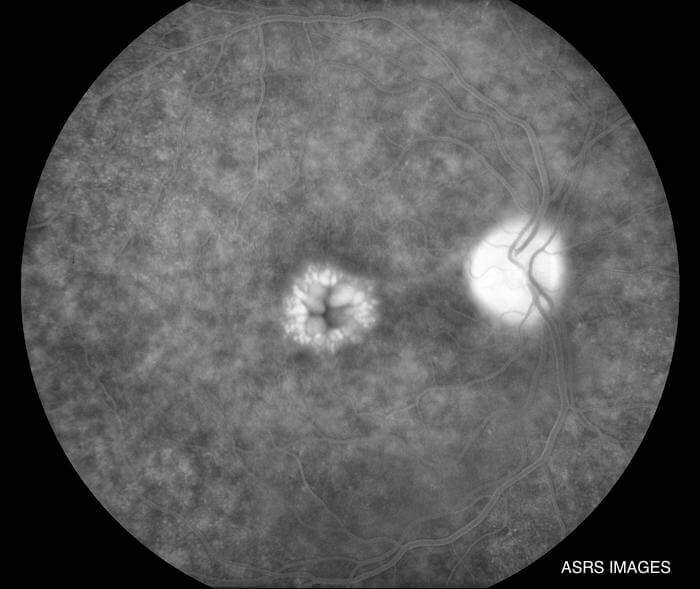
Cystoid macular edema (CME) is a common condition that involves cyst-like swelling in the central retina or macula. This fluid build-up causes blurry vision. Most cases of CME develop in patients who have had recent eye surgery, such as cataract surgery, as well as patients with diabetic retinopathy, uveitis and retinal vascular disease. Other less common causes include Retinitis Pigmentosa, macular pucker and certain drug interactions. Because inflammation is present, the blood vessels in the central part of the retina (macula), may become irritated and start to leak. As leakage occurs, the tissues begin to swell and this blurs the vision. This usually occurs about two to eight weeks after cataract surgery. Peripheral vision is typically not affected by this condition. The diagnosis is made by performing special retinal tests such as Optical Coherence Tomography (OCT) or Fluorescein Angiography (FA).
Treatment for cystoid macular edema depends on the severity of the condition, and may include:

- Ocular steroid eye drops
- Ocular steroid injections
- Non-steroidal anti-inflammatory drops or pills
- Vitrectomy surgery
Most patients experience significant improvements to their vision after one or more of these treatment options, with full recovery taking two to four months.



